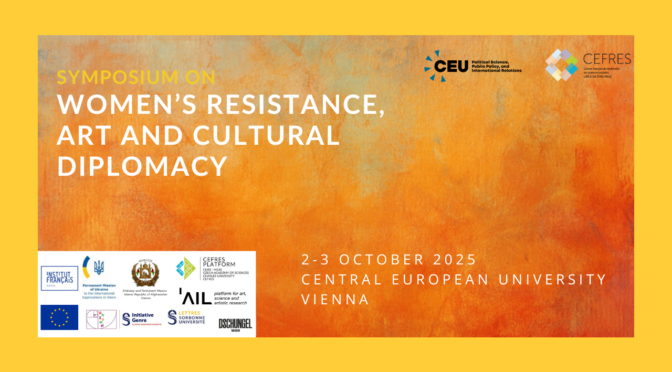
This symposium is jointly organised by the Central European University & The French Research Centre for Social Sciences and Humanities, Prague, (CEFRES).
Date: Octobre 2-3, 2025
Location: CEU Campus, Quellenstrasse 51, Vienna
Language: English
Convenors: Valeriya Korablyova, Louisa Martin-Chevalier & Seema Sridhar
See the program of the event here.
The symposium aims to bring together a variety of perspectives on creative expressions of women’s resistance through art and cultural diplomacy by engaging with academics, activists and conflict-affected artists. The event centres around insights from diplomats; scholars specialising in diverse academic streams on feminist scholarship, creative research methods, musicology; activists working with supporting and promoting exiled artists; and conflict-affected artists living in Europe. Continue reading Women’s Resistance. Art and Cultural Diplomacy →
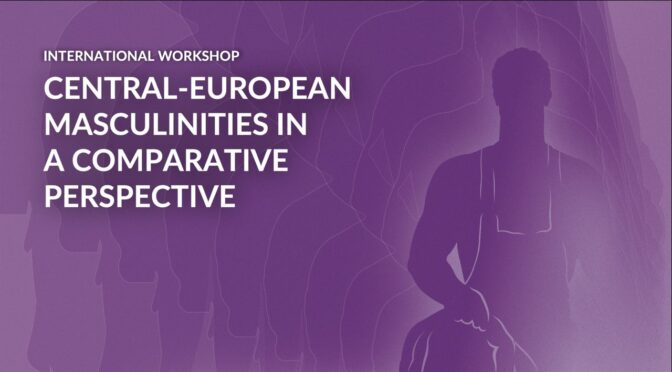
Third International Workshop:
Central European Masculinities in a Comparative Perspective
The international conference is organized by the Institute of Slovak Literature, Slovak Academy of Sciences, within the framework of the Central European Masculinities research project.
Date: September 29 – October 1, 2025
Location: University Library of Bratislava, Lecture Hall, Ventúrska 11, Bratislava
Language: English
Download the program in PDF here.
Program
Continue reading ‘Central European Masculinities’ #3 →
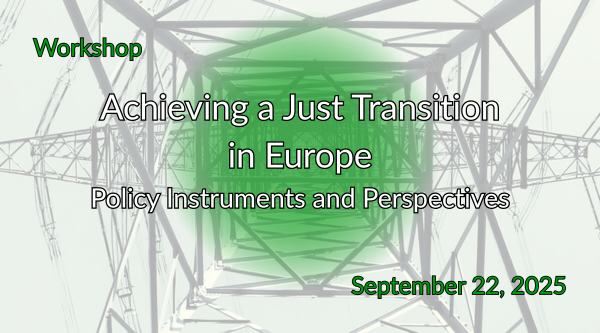
This workshop is organised by CEFRES in partnership with CNRS & the Embassy of the Republic of Poland in Prague, within the research project Contested energy transitions. Conflicts and Social innovations in big cities in the Czech Republic, France and Poland supported by the CNRS / CAS Tandem Program.
Date: September 22, 2025
Location: CEFRES, Na Florenci 3, Prague 1
Language: English
Please register at the address gilles.lepesant@cnrs.fr
Convenor: Gilles LEPESANT, Research fellow at CNRS/CEFRES (Prague)
Program
Continue reading Achieving a Just Transition in Europe: Policy Instruments and Perspectives →
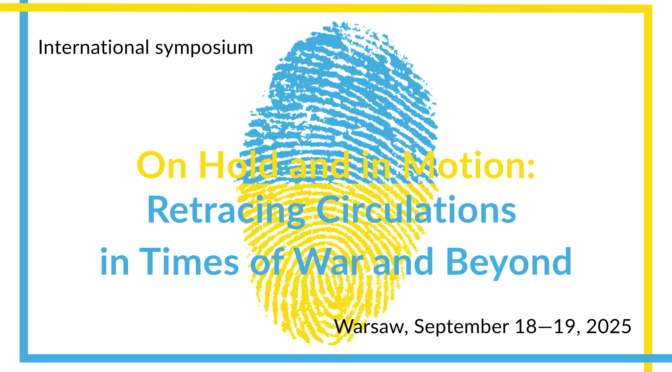
Retracing Circulations in Times of War and Beyond
==> zoom link changed: see below
The workshop is a part of a program developed jointly by the Eastern Europe, Caucasus and Northern Asia Research Institute (IRECA, Warsaw), the French Research Center for Humanities and Social Sciences and its Platform (CEFRES, Prague) and the Marc Bloch Center (CMB, Berlin): initiated in 2023 at CEFRES and continued in 2024 by CEFRES and the CMB (41 non-residential scholarships and 13 residential scholarships awarded in 2023-2024), and in 2025 by CEFRES, CMB & IRECA in collaboration with the French Ministry of Europe and Foreign Affairs (MEAE), the French Embassy in Ukraine and the French National Centre for Scientific Research (CNRS).
Date: October 18—19, 2025
Location: University of Warsaw, Dobra 55
Language: English
Organizers :
Mateusz Chmurski (French Research Centre for Humanities & Social Sciences, Prague)
Laure Delcour (French Research Institute on Eastern Europe, the Caucasus and Northern Asia, Warsaw)
Iryna Klymenko (Max Weber Foundation Research Center Ukraine)
Jay Rowell (Marc Bloch Centre, Berlin)
See the program in PDF here.
https://us02web.zoom.us/j/84943704066?pwd=Lp6hjWUVtntTcbe9ZsLEqbopAw5wNW.1
ID de réunion: 849 4370 4066
Code secret: 309777
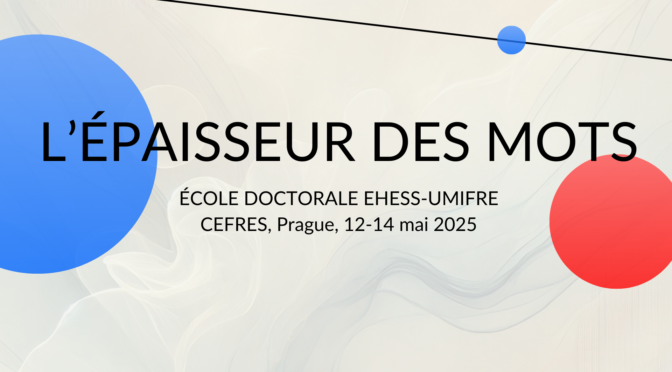
EHESS-UMIFRE Workshop
This doctoral programme will consist of four 2-3 hour workshops over two days, each focusing on a dialogue and joint readings.
Date: May 12-14, 2025
Location: CEFRES, Na Florenci 3, Prague 1
Language of the workshop: English, French
Organizers : EHESS, CEFRES (Prague), CRFJ (Jerusalem), IFA SHS (Frankfurt/Main)
Coordination : Falk Bretschneider (EHESS / IFRA-SHS) & Mateusz Chmurski (Sorbonne Université / CEFRES)
Argumentary:
How do we name the things that happen? If this question is always relevant, it is never as sensitive, divisive, or necessary as it becomes in times of crisis. The Russian invasion of Ukraine, followed by the crisis in the Near East that erupted on October 7, 2023—with their respective share of daily tragedies—give this question a cruel and painful urgency. How do we name what is happening to us? Pogrom. Resistance. Colonisation. Terrorism. Genocide. Segregation. Apartheid. War crimes. How do we choose these words, and who chooses them for us? Are these words precise enough to fairly capture reality, while broad enough not to be reduced to the empirical description of isolated events? If imprecision is a necessary attribute of language, how can we be sure that the intentions behind these words are free from manipulation, harmful visions, or dangerous ideologies? To which frameworks—legal, legislative, expert, academic—do these words belong? What do they permit, and what do they silence? How do they mobilise reason, emotion, moral judgement, or ethical and political positions? In what historical contexts were these words created or imbued with meaning, and how much would it cost to free them from those contexts? Indeed, to question, clarify, and correct the words we use as categories to analyse the world as it is—this is no easy task.
Program
Continue reading The Dimension of Words | Doctoral Workshop →
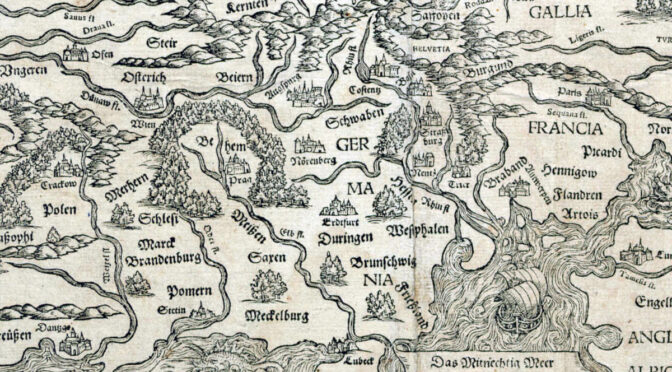
A European Middle Ages. Circulation of Objects, Practices, and Techniques between Central and Western Europe (1000–1600)
Fourth PhD Students Workshop organized within the cooperation agreement signed by EHESS, CEFRES, Charles University and the Czech Academy of Sciences.
Date: April 24, 2025
Location: CEFRES, Na Florenci 3, Prague 1 (and online, to get the link, register at the address cefres@cefres.cz)
Language of the workshop: English
Convenors:
- Lise Saussus, Center of historical research, UMR 8558, School of Higher Studies in Social Sciences
- Jakub Sawicki, Institute of Archaeology of the Czech Academy of Sciences, Prague
- Tomasz Cymbalak, National Heritage Institute, Prague
- Nicolas Thomas, National Institute of Preventive Archeological Research, Laboratory of Western Medieval Studies, Paris






